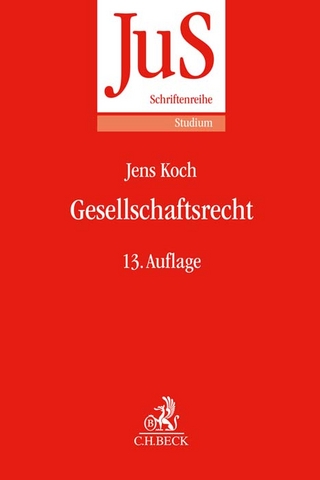
EU Trade Mark Law and Product Protection
Routledge (Verlag)
978-1-032-45228-9 (ISBN)
- Lieferbar (Termin unbekannt)
- Versandkostenfrei innerhalb Deutschlands
- Auch auf Rechnung
- Verfügbarkeit in der Filiale vor Ort prüfen
- Artikel merken
This book employs scholarly analysis to ground practical tools for applying the EU Trade Mark law (EUTM) functionality refusal grounds to address business needs when registering trade marks consisting of product characteristics. The study comprehensively examines the absolute grounds for a refusal of registration of functional signs under EUTM. It interprets the functionality refusal grounds through objective tests, focusing on the pro-competition rationale of denying trade mark exclusivity on product features that are technically or aesthetically important for competitors’ ability to trade in alternative products. The work takes a comparative approach looking at the US trade dress functionality doctrine, and a law and economics perspective on the role of trade marks and brands in the marketplace. It explores how competition rules related to market definition and the substitutability of products, as well as marketing and design findings related to branding and aesthetics, could be integrated into the legal assessment of EUTM functionality. The volume will be of interest to academics and researchers working in the areas of Intellectual Property Law, Trade Mark and Design Law, EU Law, Comparative Law, and Branding.
Lavinia Brancusi is an adjunct professor at New Technologies Law Centre, Institute of Law Studies, Polish Academy of Sciences in Warsaw, Poland. She holds law degrees from the University of Warsaw, Faculty of Law (master, dr. iur.) with an award-winning doctoral dissertation in design law. Her research interests cover cumulative protection in intellectual property, with a specific focus on product protection, functionality in trademark and design law, as well as the interface between IP and competition rules, especially in relation to brands.
Introduction: How to deal with functionality in trade mark law in a practical way; 1. The legal framework of trade marks’ functionality in the EU; 2. ‘La raison d’être’ of functionality in the EUTM - A tool for balancing interests between legal exclusivity and enhancing competition; 3. The US legal framework of functionality doctrine. Areas of convergence with EU law; 4. Functionality within the framework of law and economics. Competition concerns against protecting functional trade marks; 5. Categories of signs falling within the scope of EU functionality refusal grounds; 6. Technical functionality; 7. Generic functionality - Signs resulting from the nature of goods; 8. The functionality of signs giving substantial value to goods; Conclusions
| Erscheinungsdatum | 13.11.2024 |
|---|---|
| Zusatzinfo | 2 Tables, black and white |
| Verlagsort | London |
| Sprache | englisch |
| Maße | 156 x 234 mm |
| Themenwelt | Recht / Steuern ► Allgemeines / Lexika |
| Recht / Steuern ► EU / Internationales Recht | |
| Recht / Steuern ► Wirtschaftsrecht ► Gesellschaftsrecht | |
| Recht / Steuern ► Wirtschaftsrecht ► Urheberrecht | |
| ISBN-10 | 1-032-45228-5 / 1032452285 |
| ISBN-13 | 978-1-032-45228-9 / 9781032452289 |
| Zustand | Neuware |
| Haben Sie eine Frage zum Produkt? |
aus dem Bereich


